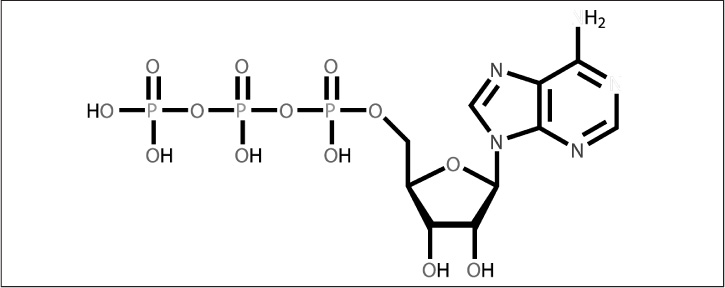Basics of BiologyMolecules and Energy |
What is the Krebs cycle? |
The Krebs cycle (also referred to as the citric acid cycle) is central to aerobic metabolism and is extremely important in the respiration cycle of mammals (specifically why we exhale carbon dioxide) and other multicellular organisms. In general, the cycle is an adaptation that allows cells to gain energy from glucose. The process is essential to obtaining high-energy electrons during the final breakdown of the glucose molecule; the essential by-products of this cycle are carbon dioxide and water. It is named after the German chemist Hans Krebs (1900–1981), who received the 1953 Nobel Prize in Physiology or Medicine for his discovery.

A diagram of the molecular structure of ATP (adenosine triphosphate), which contains negatively charged phosphate groups. When these bonds are broken, they produce energy for the cell.
